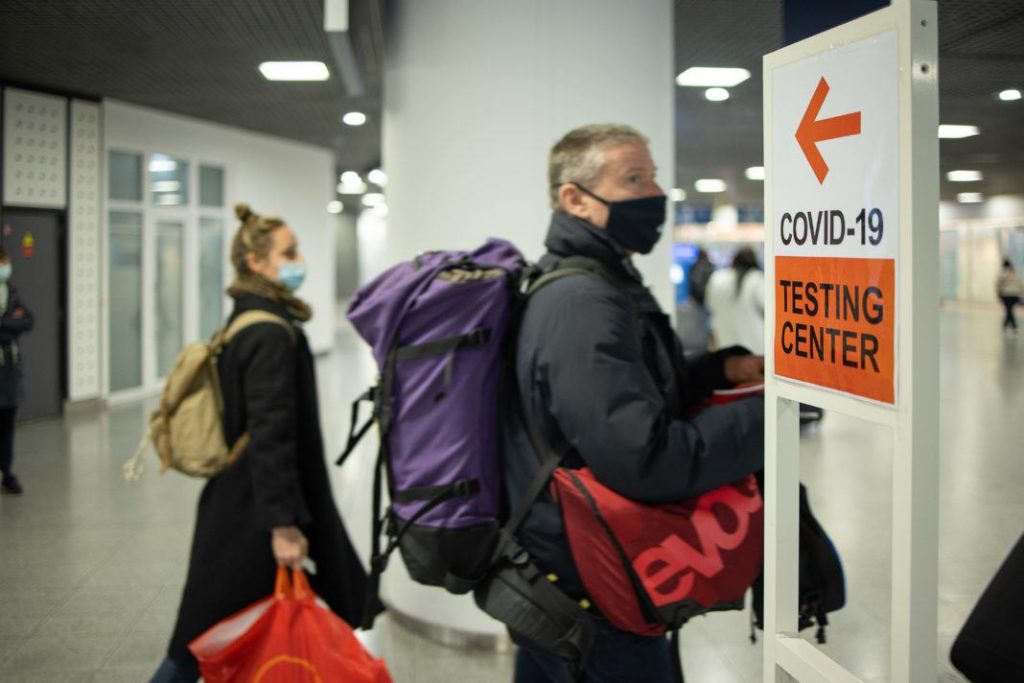Almost one in 20 of all coronavirus tests carried out for returning passengers in Brussels have a positive result, equating to a 4.4% positivity rate, which indicates a high circulation of the virus.
In the region, the positivity rate of all coronavirus test results increased by 0.4% to 2.5% on Wednesday, the Joint Community Commission (Cocom) announced on Friday.
As a result, on Thursday, the Brussels Capital Region once again coloured red on the map of the European Centre for Disease Prevention and Control (ECDC), which indicates the rules for travel in the EU.
The region was orange for a while, whilst the rest of Belgium had turned green at the end of June, however, since the sharp increase in the number of infections, it turned back to red. Meanwhile, the rest of Belgium has turned orange.
According to the most recent figures from Sciensano, Brussels on Friday had an incidence – which indicates the average number of new cases per 100,000 inhabitants during the last 14 days – of 232, up from 152 on 15 July, which means it fulfills one of the two conditions for turning red, namely that the fortnightly incidence rate is between 200 and 500.
The reproduction rate, which represents the number of infections caused by one disease, stabilised at 1.106 in the region on 21 July, however as it remains above '1', this indicates that the epidemic is picking up speed, "which means the epidemiological situation is worsening," Cocom said.
Boosting vaccination rollout
The Cocom stressed the importance of vaccination to stop the spread of the virus and to reduce the harmful health impact.
Although the vaccination campaign is progressing in the region, there are fears that collective immunity, which was recently said must be at least 80% due to the Delta variant, won't be reached.
As of Thursday, 60% of the adult population received a first dose, whilst 49% of those aged over 18 have been fully vaccinated.
According to Cocom, the vaccination rates in the region are lowest among 20- to 39-year-olds, which is also the age group that circulates the virus the most "because of their large number of contacts. "
In comparison, in Flanders, which has the highest vaccine coverage rate, 67% of all adults have received both doses, whilst in the German-speaking region and Wallonia, 65% and 64% of the adult population has been fully vaccinated, respectively.
To further boost the vaccination rollout, Cocom announced on Thursday that all Brussels residents aged 12 and over can get vaccinated without an appointment at all the region's vaccination centres.
Since 19 July, people can also get vaccinated by their general practitioners as part of the decentralising of the vaccination rollout, whilst Cocom has set up a vaccine bus - a mobile vaccination unit that will travel to the residents to facilitate getting vaccinated.

